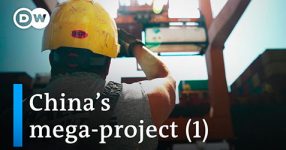In ancient China, education served as the key to escape poverty, a sentiment echoing through the ages. The recent economic surge and emphasis on hard work have elevated the status of education as the ultimate pathway to prosperity. However, the current higher education system in China paints a complex picture, leading only a select few to employment while leaving a new generation grappling with unemployment and despair.
Choosing a Future: The Dilemma of First-Generation Learners
For individuals who are the first literate members in their families, the decision to pursue higher education poses unique challenges. How does one navigate the intricate process of choosing a college when educational legacy is a novel concept? Furthermore, the financial burden adds another layer of complexity. With four years of schooling costing the equivalent of sixty years of income, the pursuit of knowledge becomes a daunting endeavor.
The Ant-Tribe Struggle: Unemployment Amidst Degrees
A staggering two million newly graduated Chinese individuals join the “ant-tribe” each year, facing the harsh reality of unemployment. The promise of a brighter future through education clashes with the stark truth that not all degrees lead to employment. What unfolds is a challenging journey for graduates like Wan Chao, moving from one unpromising job interview to another in a quest for meaningful employment.
Education as a Commodity: The Business Side of Learning
“In China, the most lucrative industry is education,” claims Wang Zhenxiang, a tutor at the private Hongbo Education college. Amidst a global economic crisis, education remains positioned as the gateway to a better life. However, the privatization of universities in 1997 transformed education into a commodity. The University Entrance Exams Day, determining students’ futures, often leads to a division between state-subsidized and costlier, substandard alternatives. Some colleges resort to unscrupulous marketing, targeting vulnerable, rural families who sacrifice their homes and livestock for education. Unfortunately, the promises made by these institutions often remain unfulfilled, contributing to a growing number of graduates facing unemployment and poverty.
In conclusion, the dichotomy of education in China reflects a nation grappling with the consequences of transforming knowledge into a commodity. As we navigate these complexities, it is crucial to reassess the true value of education in empowering individuals and uplifting communities. Education, education – a mantra that should lead not only to knowledge but also to a future free from the shackles of poverty and despair.












